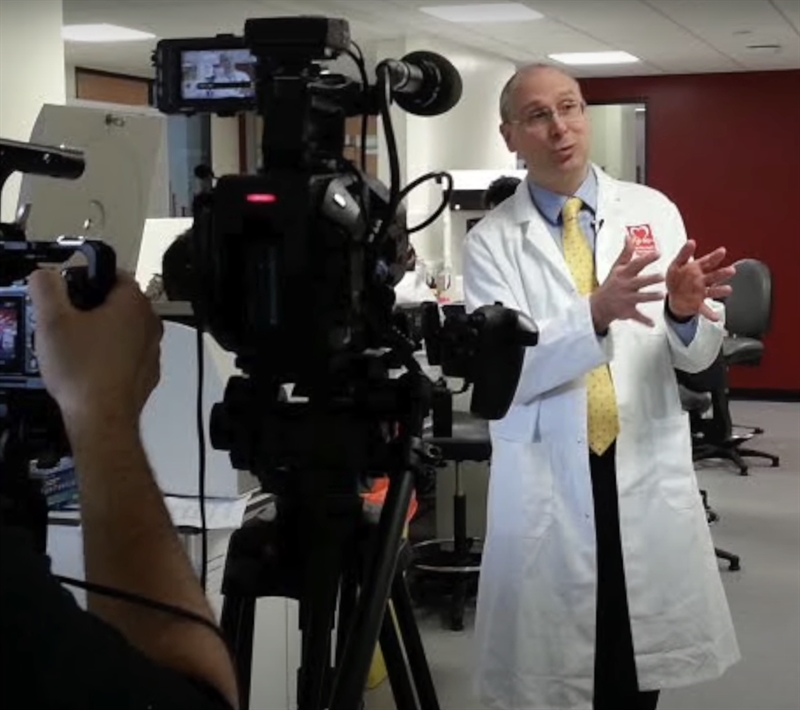Beat SCAD and the Leicester Cardiovascular Biomedical Research Unit have collaborated on a video entry for the National Institute for Health Research’s New Media Competition. The theme of the competition was raising awareness of research.
The competition was looking for entries that explain why the research is important and there is a special prize for the film that shows how public involvement has been embedded into a research project and how it made a difference.
The UK SCAD research project was initiated by one patient who overcame one of the main barriers to researching rare conditions – a lack of patients. Rebecca Breslin (Chair Trustee of Beat SCAD) made contact with other UK patients and persuaded Dr David Adlam to begin a research project. At the time Rebecca was in touch with around 30 UK patients; four years later, 450 have signed up to take part in the research.
“There are thousands of rare diseases and millions of people living with conditions which have many unanswered questions; conditions which desperately need research to save and change lives. More and more patients are taking action to find answers about their rare disease and I hope our film demonstrates the positive impact patients can have on research and what can be achieved by incorporating PPIE,” said Rebecca.
“At the start, I experienced some ‘eye-rolling’ from doctors when I pulled out my stack of highlighted journal articles and lists of questions, but I refused to let them dissuade me, I just thought ‘OK, you’re not the right person to help the SCAD group… I’ll find somebody who will’ and, thankfully, the NIHR Leicester Cardiovascular BRU said Yes!”
The patient group has been involved from the start, helping to shape the website content, creating leaflets for both patients and medical professionals, as well as attending events. And some of the research team attended Beat SCAD’s first UK conference for SCAD patients, families and friends.
“The SCAD study has shown us the magic of Patient and Public Involvement and Engagement (PPIE) in action. The work of Becks and the SCAD survivors is already informing our PPIE approach on other studies,” said Tatty Scott, Leicester Cardiovascular Biomedical Research Unit’s PPIE Manager.

